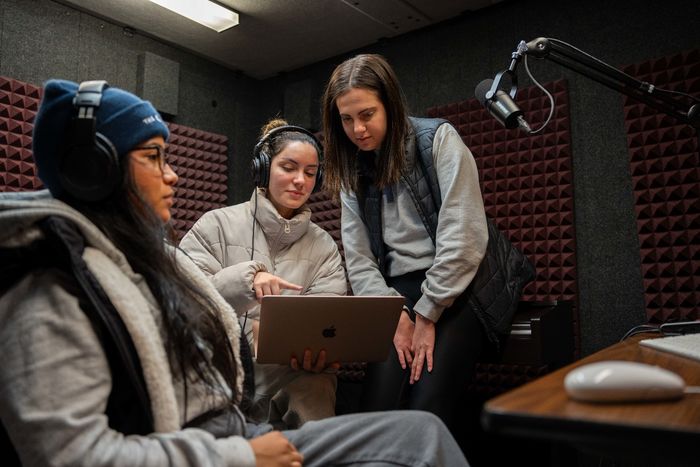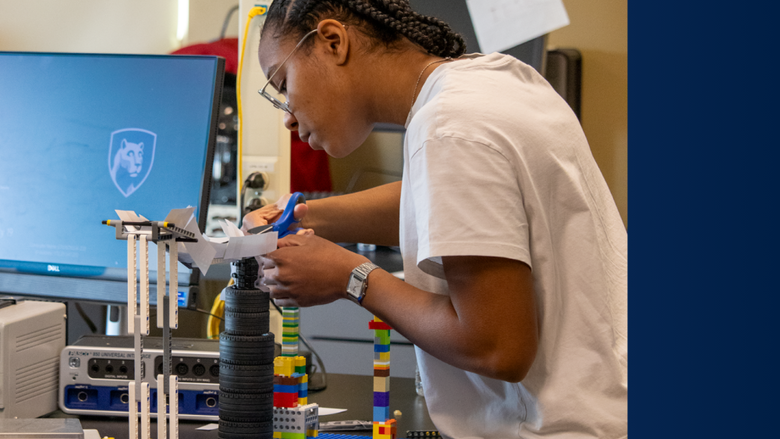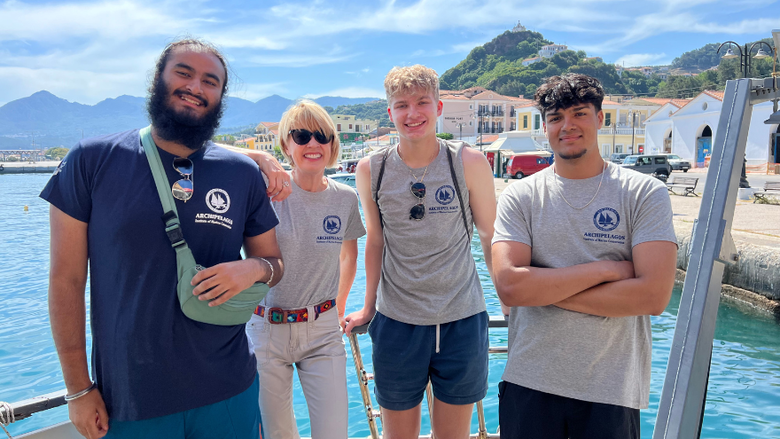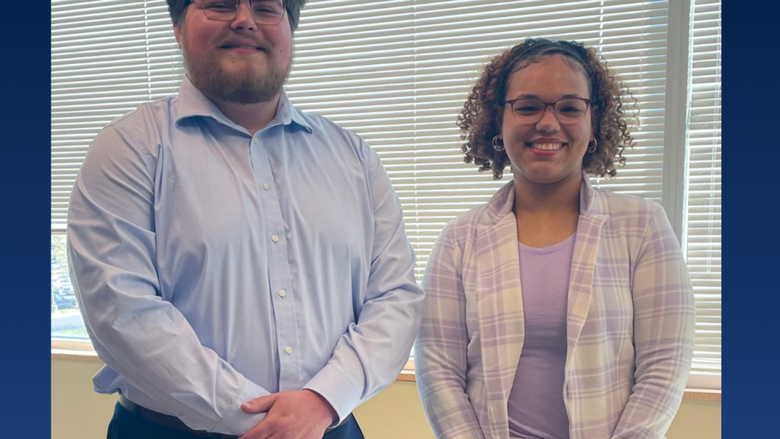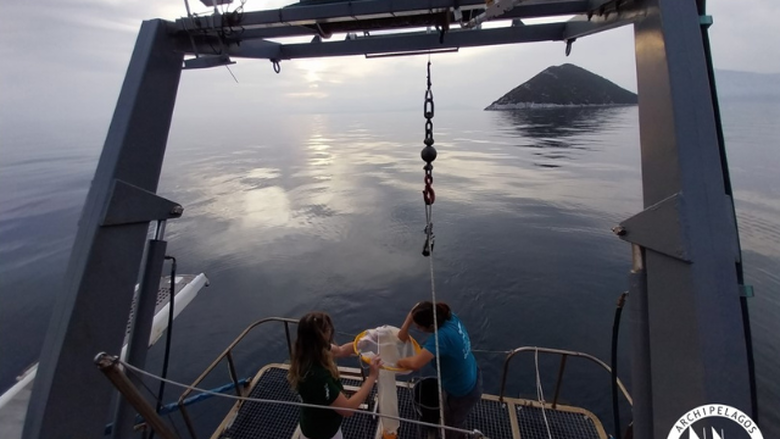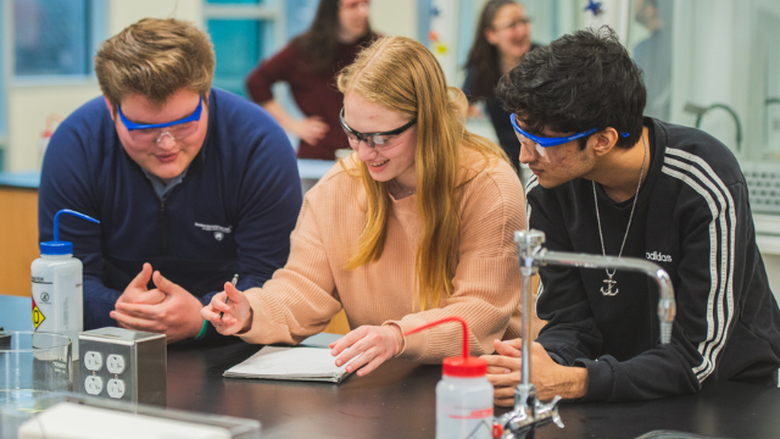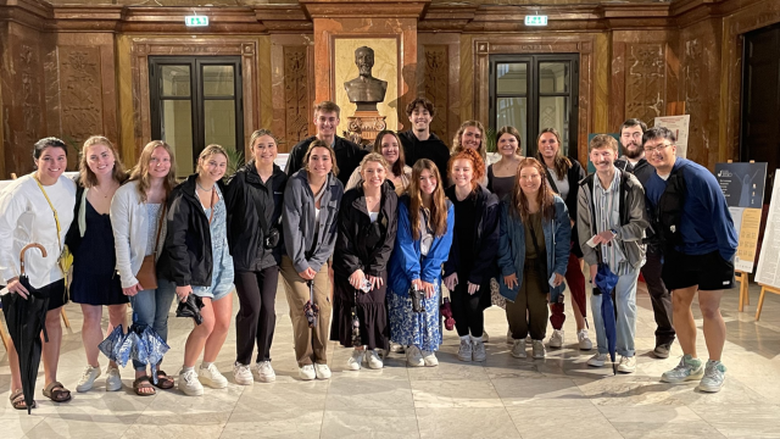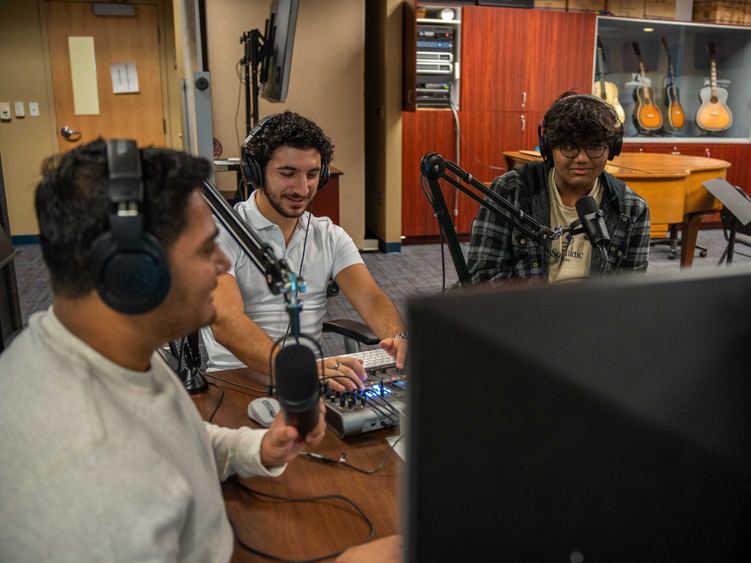
Krushil Amrutiya, Elias Haddad, Prasham Trambadia, and Joseph Wolff in COMM 211 Digital Cultures work on various stages of producing their podcasts.
CENTER VALLEY, Pa. — Liz Keptner was interested in teaching a course on podcasting at Penn State Lehigh Valley (PSU-LV). The trouble was, no course existed.
“I went into the Penn State system, and there were courses with components of podcasting, but no class dedicated to it,” Keptner said.
Undaunted, she decided to change that.
“With encouragement from my chancellor [Tina Richardson] and director of academic affairs [Anibal Torres Bernal], I found a class called Digital Cultures, COMM 234, and it fit the description of podcasting well enough," Keptner said.
Last summer, Keptner wrote the curriculum for the first podcasting course at PSU-LV. It was offered for the first-time last fall, co-taught by Keptner and Andrew Barr, PSU-LV videographer.
The class is held in the new podcasting space in the campus Music Room, the result of a recent Giving Tuesday day of philanthropy held every November. Due to equipment availability and space limitations, the Digital Cultures course is capped at 10 students.
“We have students from all majors — psychology, IT, engineering, and others. I think in this digital age, we are trying to prepare students for the future,” Keptner said. “The job market is so competitive, if a student can learn a skill not many other applicants have, that will help them rise to the top. Students can use this skill at future employers, so it really gives them an advantage.”
Students learn the entire process of producing a podcast, from idea generation to editing the final product. Projects are created using a free software program called Audacity. Last fall, topics ranged from the the LIV Golf League that competes with the PGA Tour to women’s rights to SpaceX. This spring, students’ topics have been a bit lighter and focused more on pop culture.
The class has two major assignments. The first is designing a narrative, scripted podcast.
“We bring in Elizabeth Nelson from the library who goes over the library system, talks about copyright, and the sounds they can use,” Keptner said.
Then students choose their topics, start their research, and sharpen their writing skills by putting together a script.
“Any major they’re in, it’s important for students to be good writers,” Keptner said. “Then they put their sound clips in, and after the final edits, we’ll have a listening party.”
For the second assignment, students interview one or two people for an episode, for an 8–10-minute podcast.
“Students have to come up with questions and research the person they’re interviewing,” Keptner said. “It’s really good experience for them to talk to people outside of class.”
Krushil Amrutiya talked about his experience obtaining his junior pilot’s license for his podcast.
“I always wanted to check out podcasting and what it’s like to create one. I saw Professor Liz was teaching it, so I registered. I liked taking an idea and turning it into a podcast,” he said. “I never tried it before and had no experience with audio production, so I took the class to learn the nitty and gritty.”
Amrutiya plans to start his own computer software company and producing his own podcasts — featuring fellow entrepreneurs as guests — will be part of that. He interned with entrepreneur and social media influencer Gary Vaynerchuk last summer and gained valuable insight into what skills tech CEOs are looking for.
“He was always looking for editors — it was hard for him to find editors and producers to help him with his podcast. I might make this my profession if I get really good at it," Amrutiya said.
“The students have come up with some really great topics — we’ve been surprised at some of the things they suggested,” Keptner said. “This is not a class where you come in, sit and listen to a lecture, and take a test. It’s a hands-on, production-based class. The technology and tools they’re learning, along with the different software — they leave the class feeling so proud of themselves. They’re really putting themselves out there.”
